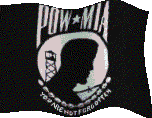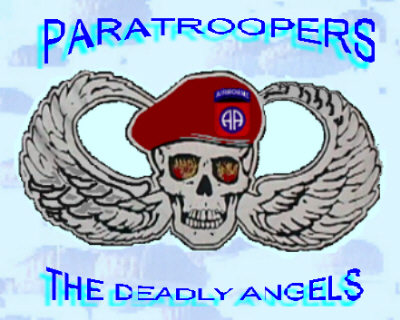
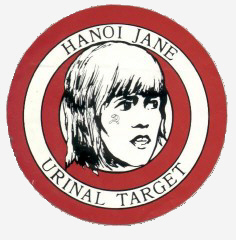
"Protester" ?
I don't think so.
Some went that extra
little bit for there cause
and went to the Enemy
Camp to voice there opinion
and protest against
America during the Vietnam WAR . If that
had happened during WW
II only one word would have applied
TRAITOR !!
Myth: The United States lost the war in
Vietnam.
The American military was not defeated in
Vietnam. The American military did not
lose a battle of any consequence. From a
military standpoint, it was almost an
unprecedented performance. (Westmoreland
quoting Douglas Pike, a professor at
the University of California, Berkley a
renowned expert on the Vietnam War)[Westmoreland]
This included Tet 68, which was a major
military defeat for the VC and NVA.
![bloodbar[1].gif (5078 bytes)](bloodbar[1].gif)
Not long ago I was asked these
Questions by a high school senior
doing a paper on Vietnam.
Why do Vietnam Veterans have so many
different stories? and why can’t
they forget and let it go?
This was such a long war that most of us have
different stories and feelings
about the places we were at in Vietnam. For
some, Saigon in 1965 was a good
duty station, the same place in 1969 might
have been a total nightmare. Again in
1973 not the best of places to be stationed.
Then there was the "Bush" never a
great place to find oneself at 20 or so years
old, and fresh out of a training from
States. All those small little villages
through out the country side, they look so
much alike but could be so different inside.
Is there a Tunnel in this one?
From the Delta and Central Highlands to the
DMZ, from Soc Trang in the south to
Phu Bai up north or Nha Trang on the east
coast, or Tay Ninh on the west near the
Cambodian border. No matter where you found
your self the war was a different
experience at different times places and
years. This is no doubt one of the reasons
why the soldiers from the Vietnam War have
been so misunderstood for so many
years. Their experiences were so different
depending on where, and when,
they were "In Country". How could
one person come back so changed, so negative
so full of anger, while another could appear
to be the person next door that never
left home. We all have our own limits of what
we can handle and deal with, for
some just being in a hostel environment with
the risk of dying was more than they
could handle. Others could walk through
combat day after day and feel no pain,
at least on the outside. Sometimes it was
just, surviving that hurt so bad, when
friends had not. And what did the Doctors,
Nurses, Red Cross and USO workers
have to deal with. What about the Donut
Dollies going around to different bases
and camps, serving Coffee or whatever they
could to the guys that needed it the
most. What memories were they keeping inside
when they got home? Sometimes
they were the last ones to hold a hand or
tell a young man that they cared. Some
wouldn’t talk about there experiences
for ten, twenty, even thirty years, because of
the way they were treated when they got home,
most trying to pretend that it never
happened. This was a unique war, in that the
masses at home refused to back there
own country's decision to fight in Vietnam,
so different from WW11. Instead of
hearing songs promoting the war effort as was
the case in WW11, the common songs
of the 60s and 70s were antiwar and songs of
peace and love. Demonstrations were
commonplace and the news media seemed to love
the controversy. No one seemed
to care that the soldiers were fighting and
dying to preserve that right for them.
This certainly added to the soldier's
confusion when he returned home. As did the
negative comments and name calling such as,
"Killers, Murders, Baby Killers,
and Dopers" This left some of the
deepest scars and pain. Most of us needed
to cry and talk when we got home but few of
us did. We chose to lock it away
for as long as we could. Then in 1979 one
man, Jan C. Scruggs a combat Veteran
of Vietnam 69 - 70 who earned the Purple
Heart and medals for gallantry, while
serving with the 199th
Light Infantry Brigade had a vision that would eventually
start the healing process for the Vietnam Veteran and a nation. With the help
of Maya Ying Lin a young woman studding
architecture at Yale University,
that vision would become a reality in 1982.
It would become the
Vietnam Veterans Memorial in Washington D.C.
and soon be called
"The Healing Place " and became
known as
" THE WALL "
Today with 58,220 names inscribed into it,
people from every walk of life,
Veterans and non Veterans alike find it to be
a place to heal. Like so many
Vietnam Veterans I also
find it to be a place to remember my friends,
to touch and say their names, to shed a tear
and say I miss you.
To make sure, they will never be forgotten.
Who are we?
Veterans no more no less than any
other war veterans.
We went when our country called to fight a
war that
was politically unpopular. That's the
difference.
"Why can't we forget" ?
Maybe because politicians use it year after
year for their own gain.
Maybe because an antiwar demonstrator
William Jefferson Clinton
could become the president
of the united states over
twenty years later. Or Hillary Rodham Clinton
his wife and fellow
demonstrator and activist
could become a United
States Senator.
Or maybe because there are still unanswered
questions about POW-MIA's from Vietnam.
Or, maybe because of the way we were
treated
when we got home.
SP4/ Gary C Lord
Phuoc Vinh, III Corps Vietnam
Class of ‘66-‘67
101st ABN Div.
79th Maintenance Bat.
1st Log Security Plt.
ABN
Going back to the
World
Next stop
Fort Bragg NC
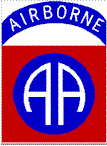
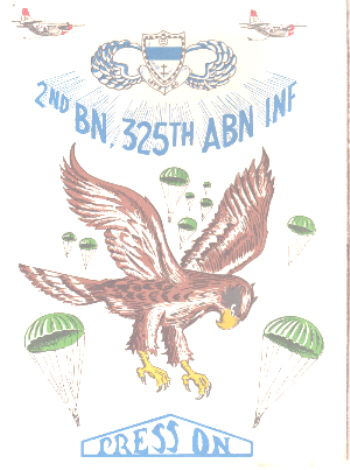

I wish I could
remember everyone's name,
but that's me in the
middle holding the beer.


The house I rented in
Hope Mills just south of FT Bragg.
Nancy Hoffman
going in my house, me and Carol (cutest girl in the neighbor hood).

Butch and Nancy
Hoffman at my house
August 1967

